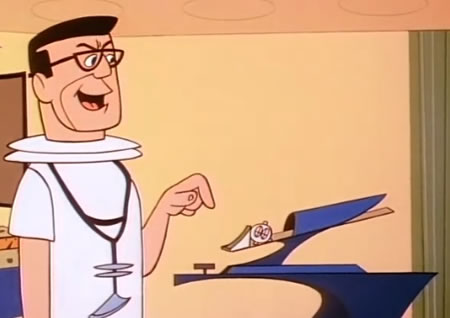
What if your patients told you a lot of useful stuff before they sat down with you?
And when they eventually walked in, you’d already read a summary of who they are, what they think is wrong with themselves, and a range of other potentially useful consultation information? Would that help?
Healthshare, the folks that bring you things such as a patient information sheet widget inside MedicalDirector and Best Practice that intelligently checks if you need anything as your consult progresses, and a fairly handy specialist directory with fee information, hopes it will.
The new system is called BetterConsult, and Healthshare’s CEO, Rami Weiss, thinks that it might be his company’s best attempt yet at meeting the challenge of making doctors day-to-day working lives easier via better information and technology.
It has some very neat technology and thinking in it. It might work.
Once a practice has agreed to use the technology (and pay for it – it’s a subscription service), the product polls the practice or doctors appointment system(s).
This might come as a surprise to some appointment engine suppliers, but the truth is it doesn’t matter which system.
The appointment is owned by the doctor and the patient, not the appointment engine provider, so if a doctor wants to use BetterConsult, and authorises it, it simply polls the doctor’s appointments, and sends a message (via text) to the patient, asking if they want to shorten and potentially make their consultation more effective by answering a few questions prior to the consult.
It provides a secure link to the BetterConsult site to do this.
Here, a new patient can enter all their basics, including what they think is wrong with them. I’ve seen it demonstrated and it’s a bit detailed in my entirely unqualified view, except that I am an impatient patient. But it doesn’t take too long, even if you’re a first timer.
The intellectual property behind the app looks fairly sophisticated. According to Healthshare, a couple of doctors have been working on the algorithms for a few years now. And then they added some secret artificial-intelligence-type sauce via their technologists. There is a lot of smarts to capture most things, in a manner that won’t annoy a patient too much.
If you are a returning patient, of course you’ll have a lot less to do. Just update the system on what might be wrong with you this time.
Or, if you might be a patient going to a new doctor, and that doctor has BetterConsult as well, then the system has most of the information on you again.
The system is built by doctors, has been independently reviewed by a panel of doctors, and in terms of data security, all personally identifiable information is encrypted, says Mr Weiss.
“We think our product will literally change healthcare.It is a win-win for the patient, the doctor and the practice.”
The benefits for GP, according to Mr Weiss, include:
- More control from the start of the consult
- Less burdensome documentation
- More time spent on the patient
- Less accreditation hassles as the app creates a form of audit
- Heightened chances of picking up something that isn’t being flagged
A couple of other neat features that the product includes is multi-language capability, medication check and capture, and a series of alerts to let the GP know when their patients are eligible for free government programs.
According to Mr Weiss, through the pilot phase the product has already picked up a good starting customer base (10 practices which have been trialling the product) and the product just got accepted into Texas Medical Center’s TMCx program (http://www.tmc.edu/innovation/innovation-programs/tmcx/).
Of particular interest if this idea took off would be the database on patient information it might build and most particularly the potential AI potential of that database for making things a lot easier for everyone in the future.
But let’s not get carried away just yet. Doctors and patients have to like it and start using it on mass for that to occur. Although it feels like a great idea, you might argue that internet fridges, google glasses and cat translators were too.
The product is sold on a per doctor subscription basis. I’d tell you how much that is, but I think then I’d have to offer a set of steak knives as well. More HERE, if you’re interested.
Disclaimer: Healthshare did not pay for this editorial, but, it does sometimes sponsor a stand at Wild Health, which is a sister group to the Medical Republic which looks at health innovation and digital transformation. Currently, The Medical Republic has no advertising contracts with Healthshare but after this peice might ring them for one (joke).

